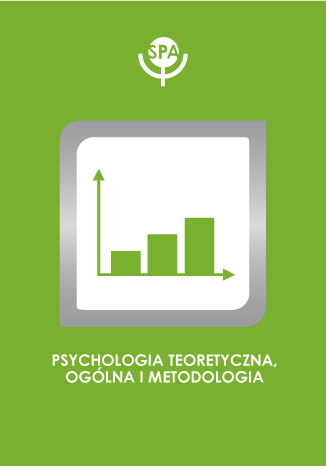Array
(
[id] => 544
[date] => 2019-03-16
[doi] =>
[title] => Nowe spojrzenie na standardy kształcenia na pięcioletnich studiach psychologicznych. Założenia, doświadczenia, nowe wyzwania
[title_en] => FIVE-YEAR PSYCHOLOGICAL STUDIES: NEW APPROACH TO EDUCATIONAL STANDARDS. THE EXPERIENCE, THE PRINCIPLES, AND THE NEW CHALLENGE
[authors] => Jerzy Brzeziński, Dariusz Doliński, Jan Strelau
[abstract] => Kształcenie psychologów w Polsce odbywa się na jednolitych, pięcioletnich studiach magisterskich. Zgodnie z obowiązującymi przepisami, studia te obejmują nie mniej niż 2500 – 2600 godzin (standardy Uczelnianej Komisji Akredytacyjnej i Państwowej Komisji Akredytacyjnej) i kończą się otrzymaniem przez absolwenta dyplomu magistra psychologii. Środowisko polskich psychologów akademickich od lat dba i zabiega o to, by kształcenie psychologów w naszym kraju miało charakter spójny z tym, co ma miejsce w USA i Zachodniej Europie. Spójność ta dotyczy tak form kształcenia, jak i treści programowych, obowiązujących studentów. Autorzy zawarli w artykule postulat spojrzenia na standardy kształcenia z czterech perspektyw: metodologicznej, etycznej, teoretycznej i aplikacyjnej. Dowodzą w artykule, że tylko łączne ich uwzględnienie pozwala na opracowanie spójnej i nowoczesnej wizji kształcenia psychologów. Absolwent psychologii nie może być tylko praktykiem ani tylko teoretykiem. Musi posiadać rzetelną wiedzę i umiejętności stosowania jej w różnych dziedzinach życia społecznego zgodnie z rygorami metodologicznymi i etycznymi. Stanowi to ogromne wyzwanie dla tych, którzy psychologii nauczają.
[abstract_en] => In Poland, generations of psychologists receive their education during uniform 5-years' studies that culminate in a Master's degree. According to current legal regulations, psychological studies embrace not less than 2,500 – 2,600 teaching hours (standards by the University Accreditation Committee and the National Accreditation Committee); graduates receive Master of Psychology diplomas. For many years, the society of Polish psychologists have been trying to ensure the coherence between psychology studies in Poland and abroad - in Western Europe and the USA. This coherence refers both to the forms of education and to the educational programs for students. The authors of this article postulate to look at the educational standards from the standpoints of methodology, ethics, theory, and application. The article demonstrates that only by taking all these four perspectives into account a coherent and modern vision of psychology teaching can be achieved. Psychology graduates can be neither solely theoreticians, nor merely practitioners. What makes a psychologist is both thorough knowledge and solid skills to apply this knowledge into various walks of the social life, in respect of methodological and ethical demands. To change this vision into a standard is the very challenge for those responsible for teaching psychologists.
[keywords] => psychological studies, educational standards, challenges
[keywords_en] => psychological studies, educational standards, challenges
[file_path] =>
[okladka] => psychologia_teoretyczna_ogolna_i_metodologia.jpg
[rocznik] => Rocznik: 2004 Tom: 10 Numer: 2
[strony] => 205-219
)










 Pobierz pełny tekst
Pobierz pełny tekst



